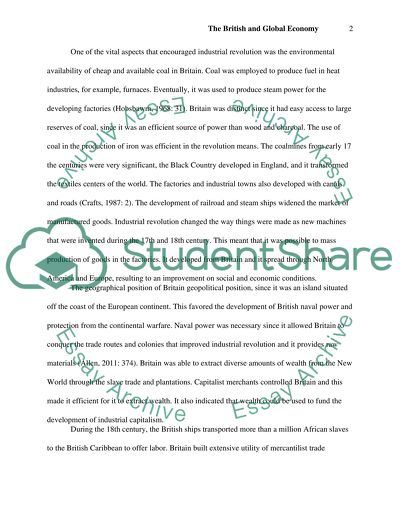The British and Global Economy. Industrial revolution in Britain Essay. Retrieved from https://studentshare.org/macro-microeconomics/1490726-the-british-and-global-economy-industrial-revolution-in-britain
The British and Global Economy. Industrial Revolution in Britain Essay. https://studentshare.org/macro-microeconomics/1490726-the-british-and-global-economy-industrial-revolution-in-britain.


